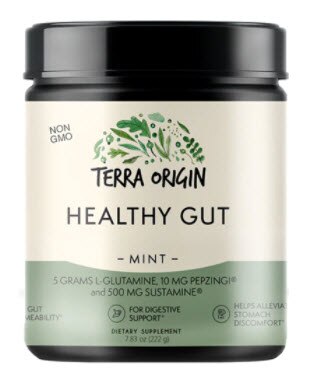The COVID-19 pandemic upended the routine of daily life as we know it for millions of people around the world. As we all learned to adjust to life during lockdown, something else may also have been changing: our gut health.
Here’s why the pandemic might have knocked the balance of your gut microbiome out of whack—and what you can do to fix it.
COVID-19 and the gut microbiome
Even at a microscopic level, humans are social beings. We love to be around each other—and so do the trillions of microorganisms that hang out in and on our bodies.
With all the concern about viral transmission surrounding the pandemic, it’s easy to forget that it can be healthy to share microbes. Diversity is key for a healthy microbiome (including in the gut) and one way to achieve diversity is to be around, interact with and touch other people.
The microbiome and lung function
Why does a strong microbiome matter, particularly in the case of COVID-19? Research suggests that a healthy balance of gut bacteria can reduce inflammatory reactions in lung diseases, and respiratory infections appear to correlate with changes in the gut microbiome. Studies conducted using a special type of mice with no microbiomes—called “germ-free” mice—demonstrate that it’s more difficult to clear pathogens from the lungs without a healthy balance of resident microorganisms.
A small trial conducted in the early stages of the pandemic showed that people who contracted COVID-19 had “significant alterations in fecal microbiomes compared with controls.” Pathogenic bacteria increased while beneficial microbes decreased, and concentrations of particular species correlated directly with the severity of the disease.
How Gut Health Affects Immunity
One potential reason for this association could be the strong link between the gut and the immune system. Our guts contain significant concentrations of lymphoid tissue and immune cells, including:
- Peyer’s patches
- T cells
- B cells
- M cells
- Dendritic cells
- Macrophages
All these cells work together like a kind of surveillance system, monitoring what enters the gut and determining whether an immune response is required. The dendritic cells “show” potential antigens to the T cells and B cells, which launch an attack against anything they don’t recognize.
This system can backfire when the gut is out of whack. Increased concentrations of pathogenic microbes can trigger immune responses, leading to inflammation and unpleasant symptoms. Immune cells can also get confused and start attacking healthy tissue if the environment in the gut was imbalanced at the time the cells were maturing.
Gut health and stress: The gut-brain connection
The gut doesn’t only communicate with the immune system; it also “talks” to the brain via the vagus nerve, which stretches from the brainstem to the abdomen. The vagus nerve is responsible for controlling muscle contractions in the intestines and also plays a role in inflammatory responses. These functions can be disrupted when outside factors like stress upset the crosstalk between the gut and the brain.
That’s why it’s not unusual to experience nausea, constipation, diarrhea and other digestive symptoms during times of high stress—of which the COVID-19 pandemic is a perfect example. It’s no surprise that reports of gastrointestinal symptoms like IBS and GERD have increased since the pandemic began.
All the extra stress has driven many people to gravitate toward familiar (often unhealthy) foods for comfort, eat more of these foods and sleep less. This combination can change the way our bodies regulate hunger, fullness and digestion, which in turn can increase feelings of anxiety, leading to a vicious cycle requiring conscious action to break.
Diet & lifestyle solutions for better gut function
Being under more stress doesn’t mean you’re doomed to struggle with gut problems. Here’s how you can promote a healthy microbiome during the COVID-19 pandemic (and beyond):
- Swap high-fat, high-sugar foods for whole, fiber-rich options like fruits and vegetables
- Add prebiotic foods like beans, garlic, onions, bananas, oats to meals
- Consider taking a probiotic supplement or including more fermented foods in your diet
- Start a home exercise program you can stick with consistently
- Sip ginger tea to soothe nausea and digestive upset
- Commit to a regular nightly sleep schedule
- Create a stress-busting routine to follow when you feel anxious
Concentrating on positive habits can help keep your mind off the constant barrage of news—and support a balanced gut. By making self-care a priority and taking steps to build and maintain a healthy microbiome, you can overcome the effects of pandemic-induced stress and move forward with a focus on health.



